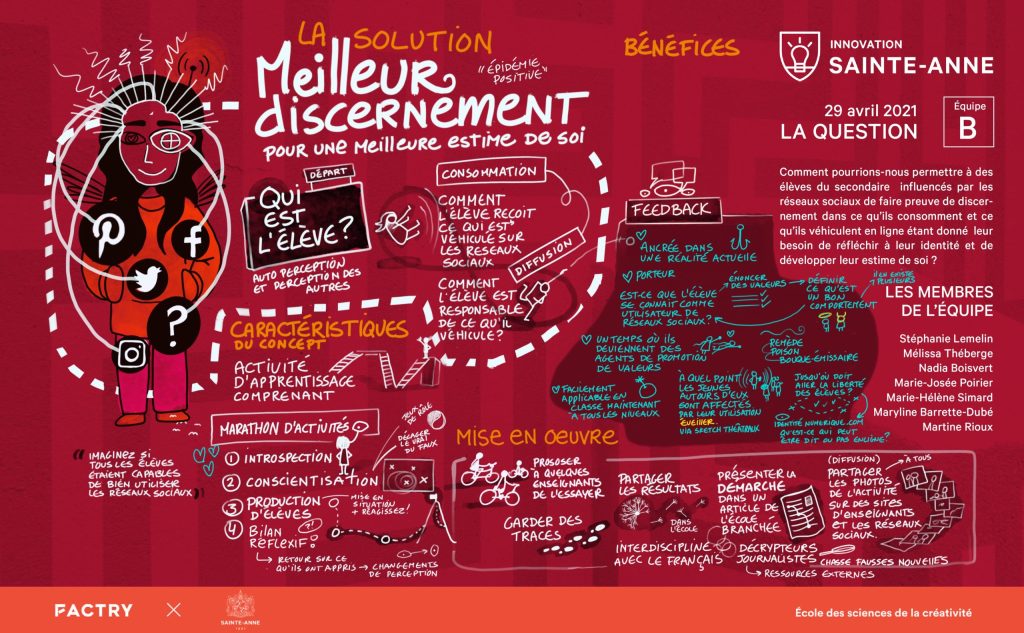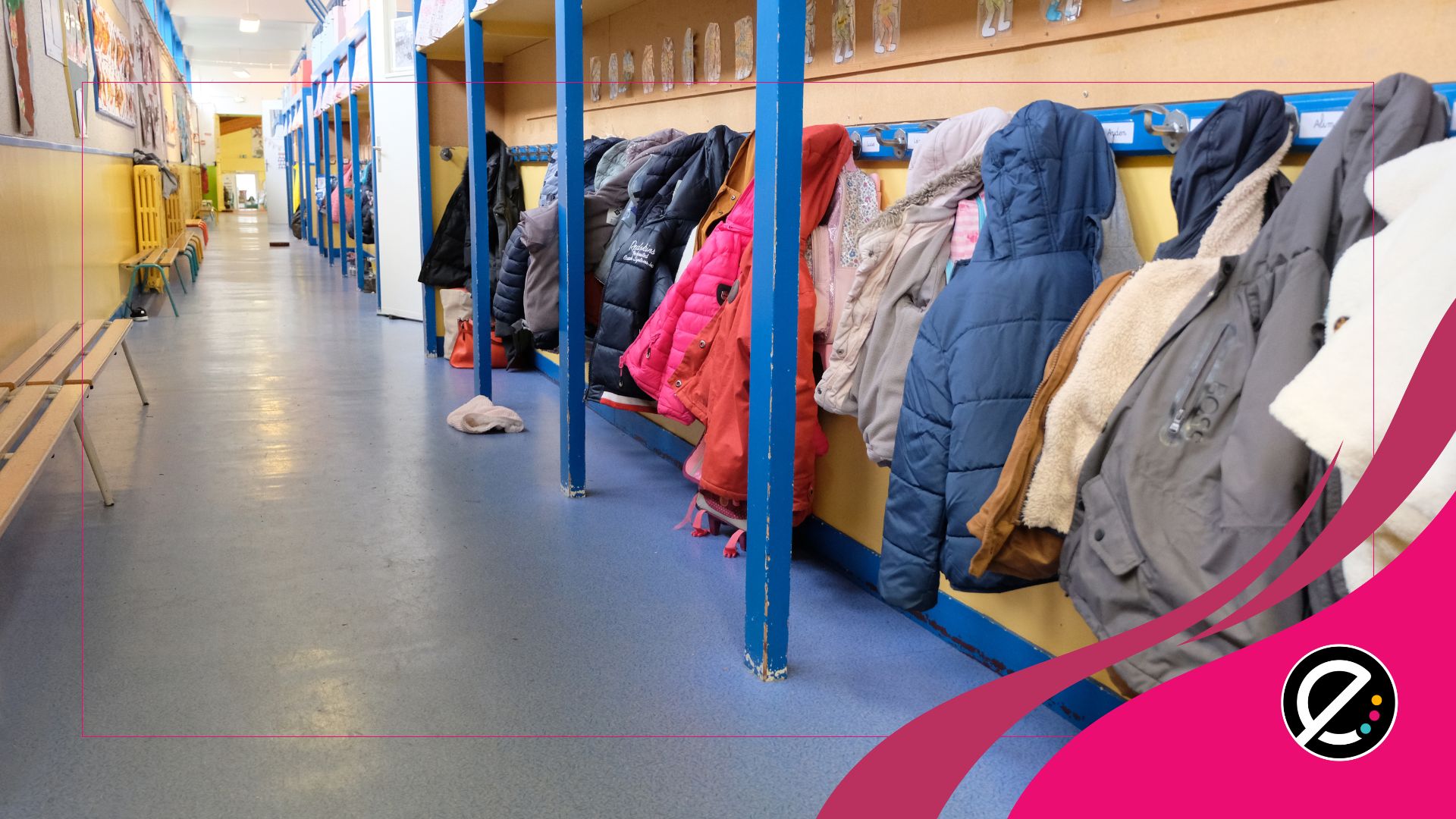Notre équipe a eu le plaisir d’assister à la deuxième édition d’ateliers créatifs créés par le Collège Sainte-Anne en collaboration avec la Factry. Tout comme lors de la première édition, nous avons rencontré des enseignants engagés à trouver des solutions créatives pour surmonter les défis engendrés par la COVID-19 et l’enseignement à distance.
Au cours des 3 séances, quatre équipes ont défini une problématique principale, imaginé une solution concrète et l’ont présentée à l’ensemble du groupe. Voici le compte-rendu de la démarche de design thinking de l’équipe B (salut les filles!) dont l’École branchée faisait partie.
Pour répondre à la problématique « Comment pourrions-nous permettre à des élèves du secondaire influencés par les réseaux sociaux de faire preuve de discernement dans ce qu’ils consomment et ce qu’ils véhiculent en ligne étant donné leur besoin de réfléchir à leur identité et de développer leur estime de soi? », l’équipe a imaginé un marathon d’activités en 4 étapes. Fait intéressant, ce concept interdisciplinaire peut facilement être partagé et créé en collaboration avec des enseignants de français, d’arts plastiques et d’éthique.
Notre concept part de l’idée d’une épidémie qui contamine positivement les autres
Introspection
La première phase débute avec la perception de l’élève, soit d’identifier comment il utilise les réseaux sociaux et de préciser comment il reçoit l’information qui y est véhiculée. Aussi, il importe de préciser comment il voit sa responsabilité dans ce qui circule. Un sondage, une activité d’arts plastiques ou de français peuvent servir à l’introspection.
Conscientisation
Afin de conscientiser les élèves, on peut référer au mot-valise infodémie, qui fusionne les mots « information » et « épidémie », et qui caractérise le phénomène de propagation d’informations de toutes sortes concernant la COVID-19 sur le Web. Pour amener les élèves à valider les informations qu’ils reçoivent, voici une activité complète à réaliser avec eux.
On peut également aller chercher des citations populaires qui se trouvent sur les réseaux sociaux en ce moment et demander aux élèves de détailler comment cela les fait réagir, qu’est-ce qu’ils ressentent par rapport à celles-ci?
Production
À cette troisième phase, les élèves doivent se mettre en action avec des mises en situation tirées des réseaux sociaux. Un projet de réalisation de bande dessinée pourrait par exemple constituer le projet des élèves préalablement mis en équipe. Une activité journalistique peut être intéressante. On peut aussi s’inspirer du projet du Collège Beaubois diffusé par Les Décrypteurs.
Bilan réflectif
Une fois le projet terminé, les élèves seront en mesure de décrire ce qu’ils ont appris et comment leur perception de départ a pu évoluer.
Dimension(s) de la compétence numérique en lien avec cet article
10- Résoudre une variété de problèmes avec le numérique et 12- Innover et faire preuve de créativité avec le numérique
Voir le Cadre de référence.







